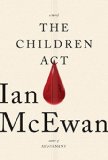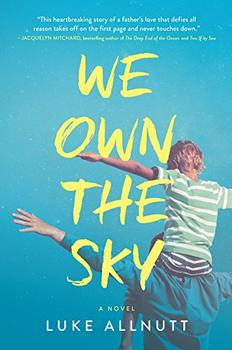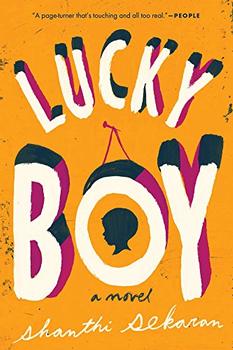Summary | Excerpt | Reading Guide | Reviews | Beyond the book | Read-Alikes | Genres & Themes | Author Bio

A fiercely intelligent, well-respected High Court judge in London faces a morally ambiguous case while her own marriage crumbles in a novel that will keep readers thoroughly enthralled until the last stunning page.
Fiona Maye is a High Court judge in London presiding over cases in family court. She is fiercely intelligent, well respected, and deeply immersed in the nuances of her particular field of law. Often the outcome of a case seems simple from the outside, the course of action to ensure a child's welfare obvious. But the law requires more rigor than mere pragmatism, and Fiona is expert in considering the sensitivities of culture and religion when handing down her verdicts.
But Fiona's professional success belies domestic strife. Her husband, Jack, asks her to consider an open marriage and, after an argument, moves out of their house. His departure leaves her adrift, wondering whether it was not love she had lost so much as a modern form of respectability; whether it was not contempt and ostracism she really fears. She decides to throw herself into her work, especially a complex case involving a seventeen-year-old boy whose parents will not permit a lifesaving blood transfusion because it conflicts with their beliefs as Jehovah's Witnesses. But Jack doesn't leave her thoughts, and the pressure to resolve the case - as well as her crumbling marriage - tests Fiona in ways that will keep readers thoroughly enthralled until the last stunning page.
At 221 pages, The Children Act is one of McEwan's leaner books. It's an absorbing read but lacks the riveting suspense and intricacies of some of his previous works. Unfortunately, too, the marital conflict between Fiona and her husband—while compelling in the first few chapters—becomes less so as the story continues. Without giving too much away, the resolution comes across as a bit too strained, and therefore difficult to believe. Nonetheless, McEwan's powerful prose radiates throughout much of this novel that also possesses his unique brilliance, wit, and warmth...continued
Full Review
(594 words)
This review is available to non-members for a limited time. For full access,
become a member today.
(Reviewed by Suzanne Reeder).
During the 19th century many children in the United Kingdom and the United States suffered from hardship, neglect, and abuse. Poor children in Victorian England had to work, frequently long hours and in dangerous conditions (in coal mines or textile mills, for example), in order to help financially support their families. In the U.S., the Civil War left many children orphaned and destitute. In addition, the Industrial Revolution and flood of immigration created a society ripe for child exploitation. Due to their size, children could fit in small spaces in mines or factories, and could be paid less than adults. They often had to forgo school and were forced to work in hazardous environments.
Although there were established societies ...
This "beyond the book" feature is available to non-members for a limited time. Join today for full access.

If you liked The Children Act, try these:

by Luke Allnutt
Published 2019
A triumphant story about love, loss and finding hope - against all odds.

by Shanthi Sekaran
Published 2017
A gripping tale of adventure and searing reality, Lucky Boy gives voice to two mothers bound together by their love for one lucky boy.